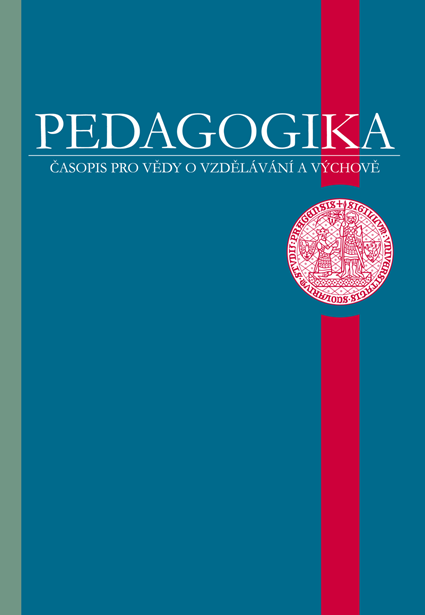Making Sense of Data: Objectivity and Subjectivity, Fact and Value
Abstrakt
ABSTRACT
Data can seem to be the very foundation of research, the sine qua non of enquiry into education. Yet this thought can be troubled by questions about the provenance of data or about how something comes to be constructed as data in the first place. And most researchers face questions about what to do with data when it arrives – where, in the social sciences more than the physical sciences, results of tests rarely show conclusively what to do next, and where, in light of this, interpretation comes to the fore. The present discussion explores problems of objectivity and subjectivity, and of fact and value, as these arise in relation to these matters. The idea that the mind is more or less separate from the body and the idea that there is a realm of fact distinct from the realm of value in many respects laid the way for contemporary notions of objectivity and subjectivity, not least in the social sciences. Yet both are now widely discredited. The present discussion will illustrate the nature of the reappraisal that, in consequence, is needed. The argument that unfolds will help to reveal the need for a reorientation of education – in research, policy, and practice – such that the role and importance of the exercise of judgement is better understood. There are implications here for research methods training and for the funding that facilitates responsible enquiry into education.
Reference
Blake, N., Smeyers, P., Smith, R., & Standish, P. (1998a). Thinking Again: education after postmodernism. Westport, CN: Bergin & Garvey.
Blake, N., Smith, R., & Standish, P. (1998b). The Universities We Need: higher education after Dearing. London: Kogan Page.
Blake, N., Smeyers, P., Smith, R., & Standish, P. (2000). Education in an age of nihilism. London: RoutledgeFalmer.
Crotty, M. (1998). The Foundations of Social Research: meaning and perspective in the research process. London: Sage.
Kwak, D-J., & Standish, P. (eds)(2014). Cultivating Humanity and Transforming the Knowledge Society, special issue of Asia Pacific Education Review. 15.1, 1-153.
Hodgson, N., & Standish, P. (2008). Network, Critique, Conversation: Towards a Rethinking of Educational Research Methods Training, in: M. Depaepe and P. Smeyers (eds) Educational Research: Networks and Technologies. Dordrecht: Springer, pp. 105-120.
Lakoff, G., & Johnson, M. (1980). Metaphors We Live By. Chicago: University of Chicago Press.
Lakoff, G., & Johnson, M. (1999). Philosophy in the Flesh. Chicago: University of Chicago Press.
Putnam, H. (2012). The Fact/Value Dichotomy and its Critics. In N. Saito and P. Standish (eds), Stanley Cavell and the Education of Grownups. NY: Fordham University Press.
https://doi.org/10.5422/fordham/9780823234738.003.0003
Robbins, L. (1932). An Essay on the Nature and Significance of Economic Science. London: Macmillan.
Smith, R. (2006). As if by machinery, Journal of Philosophy of Education, 40.2, 157–168.
https://doi.org/10.1111/j.1467-9752.2006.00509.x
Standish, P. (1995). Why we should not speak of an educational science, Studies in Philosophy and Education, 14:2-3, 267-281.
https://doi.org/10.1007/978-94-017-2616-0_9
Standish, P. (2001). Data Return: the sense of the given in educational research. Journal of Philosophy of Education, 35:3, 497-518.
https://doi.org/10.1111/1467-9752.00240
Standish, P. (2012). "THIS is Produced by a Brain-Process!" Wittgenstein, Transparency and Psychology Today, Journal of Philosophy of Education, 46.1, 60–72.
https://doi.org/10.1111/j.1467-9752.2011.00831.x
Standish, P. (2014). Signs of the Times, in: M. Depaepe and P. Smeyers (eds) The Material Dimensions of Educational Research. Dordrecht: Springer.
Standish, P. (2016). The Disenchantment of Education and the Re-enchantment of the World. Journal of Philosophy of Education, 98-116.
https://doi.org/10.1111/1467-9752.12176
Standish, P. (2017). Seeing connections: from cats and classes to characteristics and cultures, in: Michael A. Peters and Jeff Stickney (eds), A Companion to Wittgenstein on Education. Dordrecht: Springer.
Stone, L. (2006a). From technologization to totalization in education research: US graduate training, methodology, and critique. Journal of Philosophy of Education, 40.4, 527-545.
https://doi.org/10.1111/j.1467-9752.2006.00530.x
Stone, L. (2006b). Kuhnian Science and Education Research: Analytics of Practice and Training. In: P. Smeyers and M. Depaepe (eds), Educational Research: Why What Works Doesn't Work (pp.127-142). Netherlands: Springer.
Taylor, C. (1989). Sources of the Self. Cambridge, Mass.: Harvard University Press.
Taylor, C. (1991). The Ethics of Authenticity. Cambridge, Mass.: Harvard University Press.
Winch, P. (1958). The Idea of a Social Science- and its relation to philosophy. London: Routledge.



